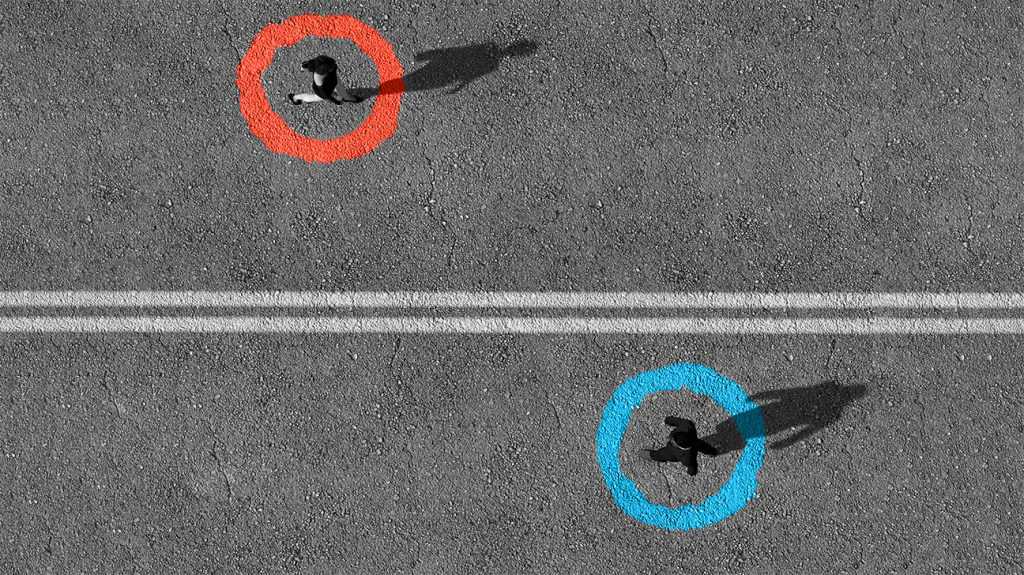Boredom and politics: Who's probably to break physical distancing rules?
22 June, 2021

- A recent study finds that conservative people who are bored were more likely to disobey early COVID-19 physical distancing rules.
- The researchers consider boredom to become a state that makes a person want to recover a feeling of agency.
- The study shows that the messaging around physical distancing could have been more lucrative if it had emphasized things a person might do, instead of what they can not do.
A new study for the University of Waterloo in Ontario, Canada, suggests that persons who are conservative and bored derived a feeling of purpose from ignoring mask-wearing and physical distancing rules through the start of the COVID-19 pandemic.
While previous research discovered that people who are bored will violate public health rules, the brand new study finds this to be a lot more true of these who are bored and politically conservative.
According to psychologist James Danckert, senior writer of the analysis, “Boredom threatens our have to make meaning out of life, and some things, such as politics, can strengthen our sense of identity and meaning.”
Public health recommendations through the pandemic serve as what the analysis terms “a call to action” for a bored conservative. Professor Danckert says:
“Many public health measures, such as wearing a mask or obtaining a vaccine, have grown to be highly politicized. Individuals who find these measures a threat with their identity, and who suffer from boredom a whole lot, find breaking the rules helps them reestablish a sense of meaning and identity.”
Trait and state boredom
In line with the study, “Our desire in order to avoid boredom may be borne of our need to experience agency.” Out of this point of view, considering that the constraints on behavior prompted by the COVID-19 pandemic “explicitly diminish our sense of agency,” they are “fertile grounds” for boredom.
The analysis discusses two types of such boredom. “Trait boredom” may be the term for boredom due to a personality susceptible to feeling that way. “State boredom” can be an in-the-moment a reaction to specific external circumstances. Though products of different stimuli - one’s emotional make-up versus situational factors - both cause a desire to flee through action, and more specifically, through the reassertion of agency.
State boredom comes from monotony, or a feeling that what we are doing is meaningless.
The authors of the analysis assert that boredom serves a self-regulatory purpose by spurring us to correct an unsatisfactory situation by prompting a desire to have some kind of action.
Who is bored, and who breaks rules
The researchers recruited 924 participants through Amazon’s Mechanical Turk platform. Of the, 386 were female, 530 were male, and eight responded as “other.”
While participants’ ages ranged from 18 to 77 years, the common age was 37.7 years, & most were from america. They completed the surveys through the early days of the pandemic, between April 28 and May 2, 2020.
The survey questioned individuals regarding their monetary and social-political leanings, from “very liberal” to “very conservative.” Other questions captured their proneness for trait boredom. Finally, participants reported the amount to which they followed physical distancing rules in the week prior to the survey.
The researchers hypothesize that people that have trait boredom more regularly experience state boredom. Therefore, the effect of trait boredom on behavior may be interpreted being the consequence of state boredom, “with trait boredom proneness standing in as a proxy for state boredom.”
The study discovered that boredom was most strongly connected with social conservatism and slightly less so with fiscal conservatism. Strong social conservatives were also those probably to break physical distancing rules.
Source: www.medicalnewstoday.com
TAG(s):
